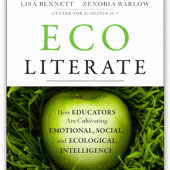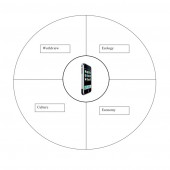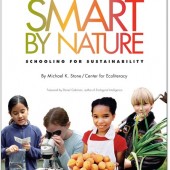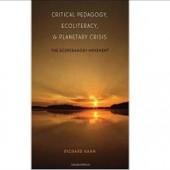
Abstract: Ecoliteracy can be defined as an understanding of natural systems and connections between biotic and abiotic factors within sustainable future. Green consumerism is an observable side of ecoliteracy. The aim of this study is, therefore, to examine the long-term effect of environmental education programmes intended for in-service teachers in terms of behavioural change. The teachers were joined ecopedagogy-based education programmes funded by TUBITAK (The Scientific and Technological Research Council of Turkey) in Turkey and were followed up after seven years. The methodology of the study was mixed method within a case study. Quantitative data were collected by a survey and analysed by R statistics. Qualitative data were analysed by content analysis. It was found that the green consumer behaviours of in-service teachers have improved in the long term. However, it is needed more follow up studies within different time frames and country comparison studies in the future.
Continue ReadingThis conceptual article presents the Head, Heart and Hands Model for Transformational Learning. The model was conceptualized from a synthesis of diverse literature, such as sustainable education, transformative learning theories, placed-based learning, indigenous learning approaches, experiential learning, eco-literacy, curriculum theory and conceptual change in science classes. Transformative processes are necessary to change the prevalent anthropocentric eco-paradigm of western culture toward more sustainable values and behaviors. Head, hand and heart is a holistic approach to developing ecoliteracy introduced by Orr (1992) and expanded by Sipos, Battisti and Grimm (2008). The model shows the holistic nature of transformative experience and relates the cognitive domain (head) to critical reflection, the affective domain (heart) to relational knowing and the psychomotor domain (hands) to engagement. Pugh’s (2002) pragmatic construct of transformational learning experience offers an analytic tool for measuring transformational experiences through expanded perception (cognitive), expanded value (affective) and active use of learned concepts (psycho-motor). This model not only represents the multi-dimensional nature of transformative processes, it also includes the importance of learning context. The context of place provides a framework of authentic experience for deeper reflection, sense of belonging and body/sensory stimulation that acts as a catalyst for deep engagement required for transformation. Literature in the domain areas are discussed as well as the importance of nature connection and love of place to sustainability values and pro-environmental behaviors.
Continue Reading
Daniel Goleman, Lisa Bennett, and Zenobia Barlow, in their book Ecoliterate: How Educators are Cultivating Emotional, Social, and Ecological Intelligence, share the stories of a new generation of educators and activists that are displaying the five practices of socially and emotionally engaged ecoliteracy: developing empathy for all forms of life; embracing sustainability as a community practice; making the invisible visible; anticipating unintended consequences; and understanding how nature sustains life. This book provides useful examples and serves as a guide for educators interested in developing a sustainability-focused learning environment for their students through the framework of ecoliteracy. The purpose of the following review is to first present the purpose, argument, and organization of Ecoliterate, and to then evaluate the claims and implications it presents for practitioners of sustainability education.
Continue Reading
As a professor of undergraduate media studies, I have attempted to bridge media education and ecoliteracy by developing an experimental media education approach called Ecomedia Literacy. The framework attempts to balance the strengths of media studies with the concerns of education for sustainability. This paper documents a specific case study in which I introduced sustainability themes into an undergraduate digital technology and culture course by using the Ecomedia Literacy framework.
Continue ReadingSince its founding, the Center for Ecoliteracy, where Zenobia Barlow is executive director and Michael Stone is senior editor, has supported and advanced education for sustainable living in K–12 schools. One of our particular concerns has been leadership and systemic institutional change. We have sought to understand both how schools can themselves change and how […]
Continue Reading
In this inspiring essay, Capra and Stone take us beyond the trite use of the word “sustainability” to an operational way of applying it in the educational setting. They outline four universal principles that should guide sustainability education, each with a profound implication for how learning occurs. They then show how the principles can be applied through a “curriculum that is anywhere learning occurs,” including lunchtime in the cafeteria and the design of the school campus. Their book Smart by Nature: Schooling for Sustainability expounds on the principles and learning-anywhere ideas laid out in brief here.

Beth Pollock provides the historical roots and inspiration of Kahn’s Ecopedagogy in Freire and Illich, giving us a good pre-view of what to expect in the book. She finds Kahn’s call for a new kind of pedagogy, founded in these greater thinkers, timely as we work towards establishing educational processes that provide the necessary literacy to face ecological and sustainability issues now and in the future.
Beth Pollock nos indica las raíces históricas y la inspiración por la formulación del “Ecopedagogía” de Richard Kahn, basado en Freire y Illich, dándonos un buen previsto de que los se espera en el libro. Ella encuentra algo pertinente en la llamada de Kahn para una nueva pedagogía, fundada en estos grandes filósofos, mientras trabajamos hacia el establecimiento de un proceso educativo que provee el entendimiento necesario para enfrentar los asuntos ecológicos y de sustentabilidad actualmente y en el porvenir.